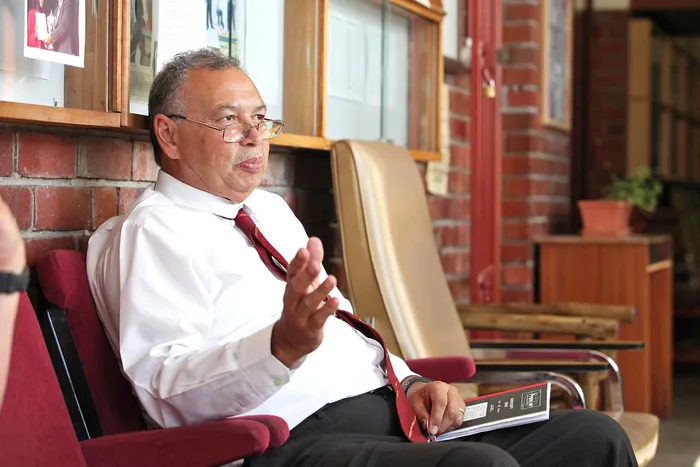
Brian Isaacs File photo Brian Isaacs File photo
THE recent death of Helen Kies gives pause for reflection on the Herculean role played by progressive teachers like her in the ongoing struggle against debased education in this country.
I spent 39 years as a teacher in the South African educational system, so I’ve come through the full-blown apartheid era into the new, post-1994 era.
While rigid race-based categorisation has given way to a more liberal dIspensation, little has changed in the way that educational opportunities are reproduced in society, and especially in the way that the poor continue to be starved of their right to a decent education. It’s true to say that the colour bar has given way to a money bar.
In 1994 all teachers were considered as being at the same level by the State. The teachers who fought apartheid and who had been part of a rotten academic curriculum, being denied all the opportunities a quality education would have given them, were all equal.
The teachers who were in power before 1994 and who supported the apartheid regime underwent no progressive political development to change their racist attitudes. They were all equal.
These factors, which were not tackled head-on continue to haunt the educational system and presents us with innumerable challenges. However, besides these obstacles good teachers will always practise sound teaching principles.
The Teachers’ League of South Africa (TLSA) established in 1913 (now called Nupsaw ES established in 1998) and The Cape African Teachers’ Association (Cata) became the most progressive teachers’ organisations in South Africa.
It set teaching among the ranks of the poor on a dynamic progressive path.
It produced teachers who were prepared to unchain their minds from gutter education. These organisations undermined the supremacy of the ruling class. They threw racist philosophy out of the window. It believed simply that we are all human beings. Nothing about the nonsense today – I am proud to be “Indian”, “white”, “ black” etc.
They produced teachers of a special kind. Knowledgeable in subjects but critical in their approach to gutter education. Teachers like Daphne Wessels, WB van Schoor, Victor Wessels, Allie and Ursula Fataar, Livingstone Mqotsi, Mda Mda, Norman Abrahams, Pumi Giyose, Veronica Williams and Charles Thomas to name but a few, made a huge contribution to teaching.
I suggest that persons not familiar with Nupsaw ES and Cata read their publications. In today’s society with students speaking about decolonisation I would suggest they read Ben Kies’s seminal book – The contribution of the Non-Europeans to World Civilisation.
It debunks that knowledge only flowed from Europe. Ben Kies was dismissed from teaching by the apartheid regime while teaching at Trafalgar High in Cape Town. Richard Dudley and Victor Ritchie showed students that physical sciences and mathematics could be mastered by the oppressed.
In the field of sport, stalwarts like Frank van der Horst laid the template for non-racial sport through Sacos. Including the various non-racial sportbodies.
South Africa should pay tribute to all those progressive teachers many of whom were dismissed from teaching by the apartheid regime for the crime of speaking truth to power and resisting gutter education, and for refusing to be a part of the debasement of the education of our children.
The education department has not and will not recognise them. Today many teachers continue to face dismissal and charges of misconduct by the present educational authorities because they dare challenge the status quo.
Those responsible for educational policy within the ANC, EFF and DA (especially Helen Zille, Angie Motshekga and Debbie Schäfer) should read the stories of these great men and women who set South Africa on a new course.
We need to confront the parties in Parliament about what these teachers did in the struggle for a non-racial South Africa in which all citizens would enjoy equal rights, and in which the benefits of a quality education would be the right of every child, not just a privileged minority able to purchase it.
Helen Kies will be remembered as one of many fearless heroes and heroines in this struggle.
Her contribution to educational rights in this country will perhaps only be celebrated when we have achieved genuine liberation from the present social system.
It is fitting to end off with the rallying call to teachers and parents that has resounded through the decades: “Let us live for our children.”